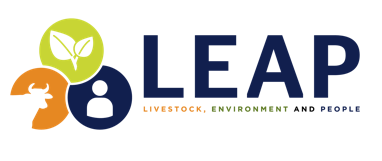We are pleased to announce a final LEAP conference on 16 April 2024 at Lady Margaret Hall. Registration is now open.
Current worldwide food consumption practices are unsustainable. In particular, the food system is responsible for more than a quarter of all greenhouse gas emissions, while unhealthy diets and excess body weight are among the greatest contributors to premature mortality.
The LEAP conference, sponsored by the Wellcome Trust Our Planet Our Health initiative, will bring together researchers working on multiple aspects of meat and dairy production and consumption to consider its effects on population health, the economy, society and the environment, and aims to build a community of researchers in this field to share evidence and tools to inform action.
Call for abstracts
Abstracts must directly relate to the themes of LEAP. We are eager for researchers at all levels to participate, especially PhD candidates and postdoctoral researchers.
There will be opportunities for both short oral presentations and posters (A1/A0) portrait format). If the total number of abstracts received requesting oral presentations exceeds the space available, we will offer a poster slot as an alternative. There will be prizes for best abstracts (1 x oral; 1 x poster).
Please send the following information as a Word document to leap@oxfordmartin.ox.ac.uk by 7 March 2024:
-
Name and affiliation (if any)
-
Email
-
Title of paper
-
Brief abstract (300 words)
-
Preference for oral or poster presentation
Successful applicants will be notified before the end of March 2024.
£90 day fee; £30 students. Lunch and refreshments are included. A limited number of bursaries to cover registration fees are available, please email leap@oxfordmartin.ox.ac.uk to enquire.


